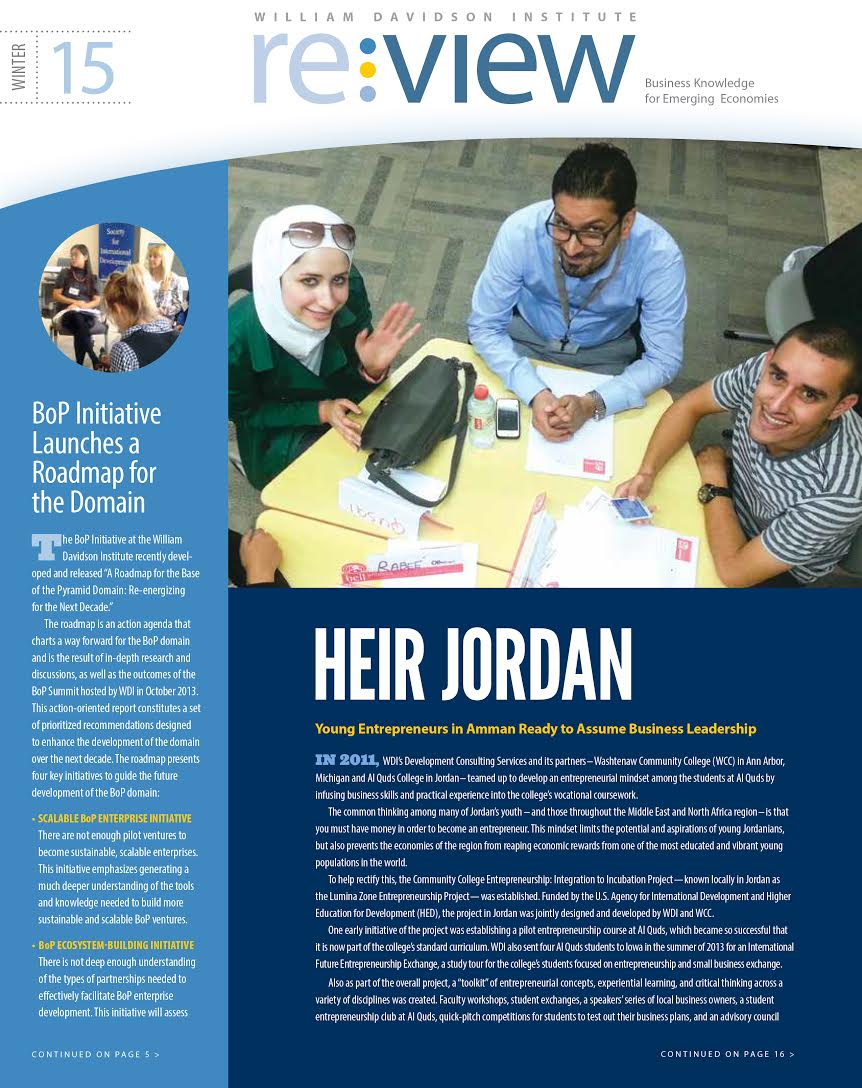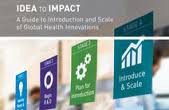The base of the pyramid (BoP) domain is at an important crossroads. More than ever business, and market-based approaches in general, are seen as part of the solution to global poverty. But substantial challenges remain. Built around a prioritized set of initiatives for the future development of the BoP domain, the BoP Roadmap is intended to be a catalyst to generate a stronger and more robust BoP community.
Speaker: Robert Fregolle, Jr., Global Customer Business Development Officer, Procer & Gamble.
Bob Fregolle is Procter & Gamble’s Global Customer Business Development Officer. Prior to his current position, Bob was Vice President – Customer Business Development for various regions: Asia – based in Singapore (2008-2009), Central and Eastern Europe, Middle-East and Africa (CEEMEA) countries while based in Geneva (2003-2008), Greater China (2000-2003), and Europe, Middle East and Africa based in Belgium (1997-1999). He has also been active in local and national activities such as American Chamber of Commerce Governor, Guangdong Province, China; Geneva Youth Baseball League Commissioner; and Co-Chair of the “New Ways of Working Together” initiative with the Consumer Goods Forum (2009-current). Bob is a graduate of the University of Michigan Business School (BBA ’79) and joined P&G the same year.
Zagaya was established in 2011 to ensure access to affordable malaria treatments in the developing world. Zagaya licenses technologies that allow it to partner and collaborate to solve problems. Over the longer term, Zagaya is committed to ensuring artemisinin-based combination therapies (ACTs) remain affordable by reducing the cost of raw materials, manufacturing, formulation with co-drugs, packaging and distribution. Student intern Pallavi Suresh developed a detailed analysis and strategy for antimalarial supply chains.
CARE is one of the world’s largest private international humanitarian organizations, committed to helping families in poor communities improve their lives and achieve lasting victories over poverty. CARE wanted to improve its ability in the Base of the Pyramid (BoP) field and establish a Center of Excellence focused on social enterprises and BoP. Ross student intern Shveta Suneja laid the foundation for the center by identifying high level goals, methodology for extracting and synthesizing knowledge, and developing a proposal for long term funding.
Pfizer is the leading pharmaceutical company in the world, with top selling products in a variety of different therapeutic areas. In 2009, Pfizer launched its Emerging Markets Business Unit. As part of the unit, Pfizer also launched the Global Access to Medicines (GA) team to develop commercially-viable and socially responsible business strategies that target the Base of the Pyramid (BoP) as a new commercial market segment. Ross School student Onur Aksoy helped the Global Access team prepare its operating plan for 2012. He analyzed available data from various team work streams; worked with work stream leads to support further refinement of Global Access’ strategic approaches and tactics for 2012; quantified revenue opportunities, developed forecasts and operating expenses; quantified financial and intangible benefits of Global Access’ strategies for the corporation, its customers, partners, and patients; worked with Global Access’ team lead to develop overall story line of an operations plan and developed impactful presentation materials such as slide decks.
The latest approaches to monitoring sustainability in agricultural supply chains was the latest free webinar presented by WDI. The hour-long webinar, “Monitoring Sustainability Performance in Food & Agriculture Systems,” was on June 25 and included a Q&A at the end with the guest presenters, Daniele Giovannucci and Jessica Mullan, Committee on Sustainability Assessment (COSA).

This webinar was part of WDI’s “Power of Poverty Assessment” series of free, ongoing webinars. Each webinar showcases the latest work of WDI and its partners in the poverty reduction and impact assessment sectors.
“Performance monitoring is a powerful tool for informing decision-making in real time,” said Heather Esper, WDI Program Manager for Performance Measurement. “More and more businesses as well as funders are interested in developing and strengthening such feedback loops in order to improve the agility of learning.”
The mission of COSA is to advance sustainability in agriculture via partnerships and learning. Giovannucci is president and co-founder; Mullan is monitoring program coordinator.
The two discussed the process of performance monitoring, and highlighted examples from their global work with diverse companies and organizations that use performance monitoring data.
Performance monitoring offers fast results at a low cost, which makes it particularly suitable for understanding sustainability performance in areas with limited capacity or resources for learning or assessment. It also is an optimal management tool for projects or investments, integrating vital information into real-time dashboards to improve decision-making.
WDI Senior Research Fellow Ted London spoke with Michigan Ross writer Terry Kosdrosky in advance of London’s presentation at the Positive Business Conference May 14-15 at Ross.

Click here to read the article.
Click here to learn more about the Positive Business Conference.
The winter 2015 issue of the Davidson Review, featuring a cover story on the Institute’s entrepreneurship project in Jordan and the launch of the BoP Roadmap, is now ready to view online.

The Review profiles five young Jordanians who have benefited from WDI’s work to build an entrepreneurial mindset at Al Quds College in Amman. It also chronicles the launch event of BoP Roadmap help in Washington, D.C. and the first activities associated with it.
The winter issue also recaps the latest with the Base of the Pyramid and Healthcare research initiatives, updates on the new and ongoing Development Consulting Services’ projects, and the featured work of WDI’s Executive Education and Case Publishing programs.
To read the latest issue of the Davidson Institute Review, click here.
WDI’s Healthcare Research Initiative hosted a special preview Jan. 28 of a new USAID guide and toolkit designed to help people develop, introduce and scale global health innovations.

David Milestone of the U.S. Agency for International Development’s Center for Accelerating Innovation and Impact led the WDI seminar. The center developed, “IDEA to IMPACT: A Guide to Introduction and Scale of Global Health Innovations.”
To develop, introduce, and scale global health innovations, a complex set of activities is required across many countries, and with many actors (donors, implementing partners, ministries of health, and manufacturers, among others) making coordination and efficient execution difficult.
Recognizing this, the guide and accompanying toolkit identifies and illustrates priority activities to help practitioners think through, plan, and execute the many steps needed to ensure successful launch and scale from bench to bedside. The guide provides context through examples, and offers a growing set of tools that can help users put these activities into practice.